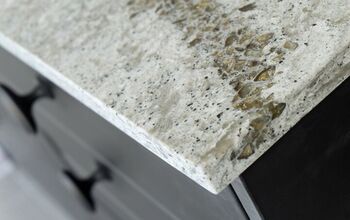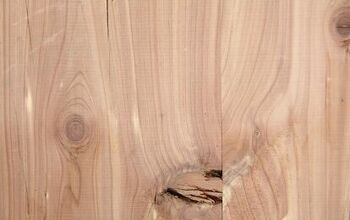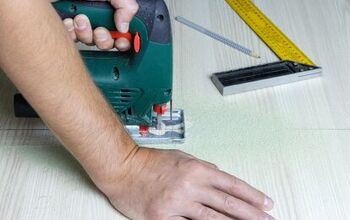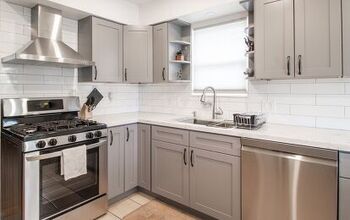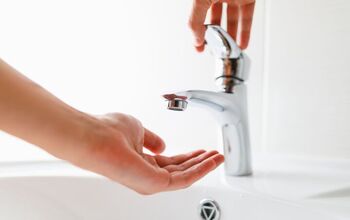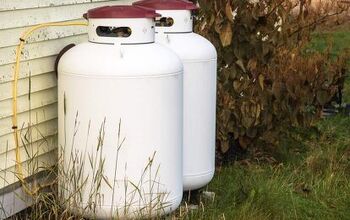Do Quartz Countertops Need To Be Sealed?

Quartz countertops are a popular option for many kitchens and bathrooms, known for their durability and versatile appearance. Quartz holds its own against the long-lasting countertop superstar, granite, featuring a glossy and high-end appearance. However, do quartz countertops need to be sealed like granite counters?
You do not need to seal or reseal quartz countertops, making them easy to maintain. If you try to apply a sealant to quartz counters, the counters won’t absorb the sealer as with a natural stone. The reason is that quartz countertops are nonporous, and you can clean them with mild soap and a sponge or soft cloth.
Granite countertops might be a forerunner in the world of countertops, but the porosity of the natural stone means more maintenance. You need to seal them regularly to protect them. However, you can get a similar look with quartz countertops without worrying about a lot of extra maintenance.
Should You Seal Quartz Countertops?
Many people associate various stone countertops with needing regular maintenance, including sealing the counters. For example, ever-popular granite countertops require routine sealing to keep them in tip-top shape. The same applies to marble and also quartzite, which needs occasional sealing.
These natural stones undoubtedly create luxurious, high-end finishes that create a sophisticated vibe to your space. However, they also are porous, meaning they soak up liquids easily.
If you fail to seal natural stone countertops, they can stain quickly as they absorb spills. However, when you apply a sealant, the countertop absorbs the sealant down into its pores. Therefore, the sealant closes the stone’s pores against liquids that would otherwise penetrate them.
However, if you decide to install quartz countertops, you can rest easy knowing you won’t have to worry about sealing them. Quartz counters feature a mix of various materials. Most of your counter will be natural quartz stone, but the rest will be other components like silicon dioxide and various bonding resins.
A natural sealant is incorporated into quartz counters toward the end of the manufacturing process. This natural sealant makes the countertops nonporous, so they won’t absorb water and other liquids.
Since they lack porosity and already have a natural seal, quartz countertops do not need to be sealed. If you tried, the countertops wouldn’t be able to absorb the bond, just like they can’t absorb liquids.
What Happens If You Seal Quartz Countertops?
For a sealant to work correctly, the material you apply it to needs to be able to absorb the sealer. It would be pointless if you decide to seal your quartz countertops. Since the counter isn’t porous, it can’t absorb the sealant like natural stones.
This process creates a protective barrier that prevents certain materials, like granite or marble, from absorbing other liquids. But with quartz counters, the sealant would just rest on top of the counters since it can’t soak into them. You’d essentially just end up with a weird liquid layer on top of your countertops.
What Is The Best Way To Protect Quartz Countertops?
Even though quartz countertops have a built-in sealant, it doesn’t mean they’re indestructible. They are very scratch-resistant and easy to clean. However, being sealed doesn’t mean they can’t stain.
Spilling red wine on your quartz countertops can still leave a nasty stain if you don’t address it quickly. The staining on quartz often results from how the spills react to the resins in the countertops.
Typically, if you clean spills as soon as they happen, you have a better chance of keeping your quartz countertops stain-free. Also, make sure to use trivets or pads for hot pots and pans instead of setting them directly on the countertop. When cutting, always use a cutting board.
A mild soap or dishwashing liquid is acceptable to clean your quartz. Always make sure to rinse all soapy residue away. Avoid harsh cleaners, chemicals, abrasive sponges, steel wool, or other rough materials.
Tips For Cleaning Quartz Counters
Here’s a quick checklist of the best way to keep your quartz countertops clean and beautiful.
- Wipe up spills as soon as they happen using a soft, wet cloth.
- Avoid using harsh chemicals to clean your quartz countertops.
- Using mild dish soap and water is an excellent way to wipe down your quartz countertops.
- You can also use cleaners specially formulated for cleaning quartz.
- Always use a soft rag or sponge when cleaning your quartz countertops.
- Quartz countertops don’t need to be sealed. The sealant would just create a weird film on your counters.
- If there’s a caked-on mess, wet a rag with warm water, and lay it over the mess to loosen it up.
- For stubborn stains like red wine, you can try using a magic eraser or baking soda to help remove the stain.
- Never put hot pans directly on the countertops; use a hot pad or trivet. The heat can crack the counters or react with the resins, causing discoloration.
- Quartz is scratch-resistant, but you should not cut directly on the counters. Always use a chopping or cutting board.
How Do You Make Quartz Countertops Shiny?
Quartz has a naturally shiny appearance that is permanent, thanks to the manufacturing process. Quartz countertops don’t need to be sealed to make them shine. However, if you don’t clean your counters regularly, they can certainly take on a dull look.
The best way to maintain your quartz countertop’s shiny appearance is to clean your counters daily. Simply wipe them down after every use with a soft sponge or cloth. You also need to use the right cleaners to avoid leaving soapy residue on top of the counter.
These residues can interfere with the finish and how light reflects off your counters, making them appear dull. Make sure to rinse all soap away if using something gentle like dish soap. Otherwise, your countertops can end up with streaks.
Also, using harsh chemicals can damage the countertop’s surface. Therefore stick with mild soap and water, or you can use a specially formulated cleaner for quartz countertops.
These cleaners are designed to clean and polish quartz to maintain its shiny finish. You can also use special polishes for quartz to buff your countertops and highlight their shine.
Avoid Using These Things On Quartz Countertops
In addition to avoiding harsh chemicals and abrasive sponges or pads, don’t use the following items on your quartz countertops.
- Nail polish remover
- Ammonia
- Bleach
- Highly acidic cleaners
- High alkaline cleaners (the best cleaners have a pH value between 5 and 8)
- Turpentine
- Paint Remover
- Lemon Juice
- Undiluted vinegar
- Lysol or Clorox Wipes (Might be okay for a quick, occasional wipe. But if they contain bleach, they could lead to discoloration. Therefore, use sparingly.)
Summary
Quartz countertops are an excellent option if you’re looking for a beautiful appearance that’s easy to maintain. Since they are nonporous, you don’t need to worry about regular maintenance or sealing quartz countertops. They won’t absorb liquids as natural stone surfaces will.
Therefore, they won’t absorb a sealer, which is why sealing them is unnecessary. However, taking care of your quartz countertops is essential to keep them looking their best. Wipe them down after every use with a soft cloth and use mild soap or a specially-formulated quartz cleaner.
Always use trivets or hot pads instead of placing hot pans directly on the counter. Using cutting boards and avoiding harsh chemicals or abrasive cleaners on your quartz countertops is also important.
If you stick by these few cleaning and care tips, you’ll keep your quartz countertops shiny and beautiful for many years to come.

Stacy Randall is a wife, mother, and freelance writer from NOLA that has always had a love for DIY projects, home organization, and making spaces beautiful. Together with her husband, she has been spending the last several years lovingly renovating her grandparent's former home, making it their own and learning a lot about life along the way.
More by Stacy Randall










